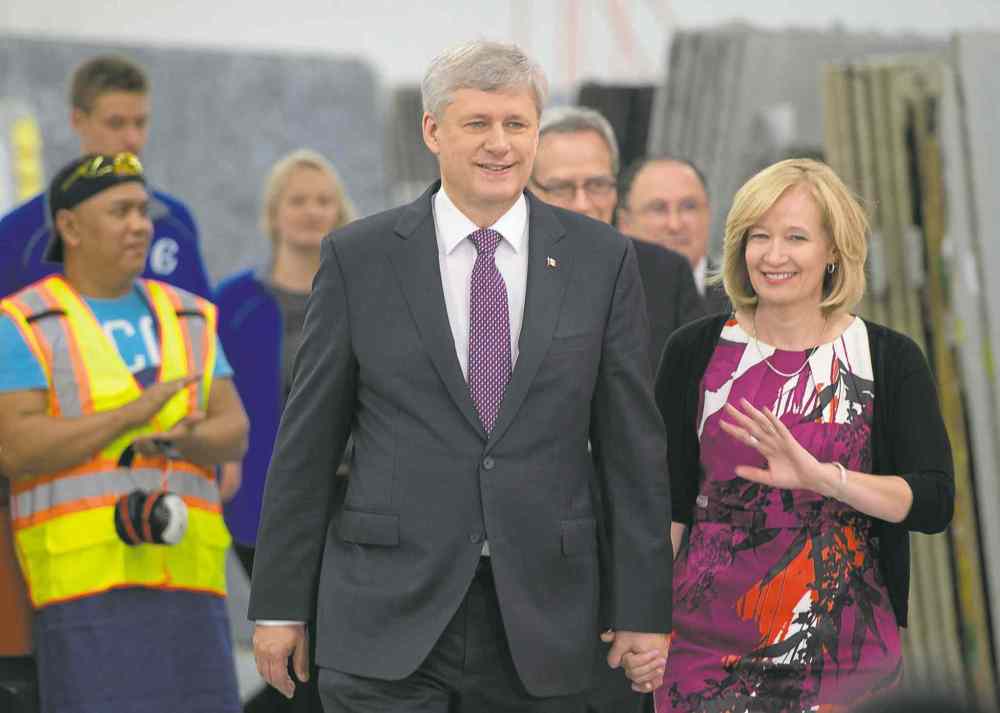Harper’s discipline a key asset
Veteran campaigner not likely to commit any major gaffes
Advertisement
Read this article for free:
or
Already have an account? Log in here »
To continue reading, please subscribe:
Monthly Digital Subscription
$0 for the first 4 weeks*
- Enjoy unlimited reading on winnipegfreepress.com
- Read the E-Edition, our digital replica newspaper
- Access News Break, our award-winning app
- Play interactive puzzles
*No charge for 4 weeks then price increases to the regular rate of $19.00 plus GST every four weeks. Offer available to new and qualified returning subscribers only. Cancel any time.
Monthly Digital Subscription
$4.75/week*
- Enjoy unlimited reading on winnipegfreepress.com
- Read the E-Edition, our digital replica newspaper
- Access News Break, our award-winning app
- Play interactive puzzles
*Billed as $19 plus GST every four weeks. Cancel any time.
To continue reading, please subscribe:
Add Free Press access to your Brandon Sun subscription for only an additional
$1 for the first 4 weeks*
*Your next subscription payment will increase by $1.00 and you will be charged $16.99 plus GST for four weeks. After four weeks, your payment will increase to $23.99 plus GST every four weeks.
Read unlimited articles for free today:
or
Already have an account? Log in here »
Hey there, time traveller!
This article was published 05/08/2015 (3746 days ago), so information in it may no longer be current.
OTTAWA — In 2005, when Stephen Harper kicked off his second bid for the Prime Minister’s Office, he was clearly on the upswing.
Facing a Liberal government of 12 years that was plagued by scandal and infighting, Harper entered stage right offering a fresh new face.
He was the head of the united Conservative party, he had developed a disciplined and well-organized election machine, and during the 55-day campaign, he made very few mistakes.

From 2004 to 2011, Harper and the Conservatives batted opponents on a slow but steady march to a majority government, honing their skills, their fundraising ability and their message. They won 99 seats in 2004, 124 in 2006, 143 in 2008 and finally a majority government with 166 seats in 2011.
In Manitoba, the pattern was the same with seven seats in 2004, eight in 2006, nine in 2008 and 11 in 2011.
This election is a different animal for the Conservatives, but you likely won’t see Harper change much in how he campaigns or what he says.
With one-fifth of the Conservative caucus not running again, including three MPs in Manitoba, the party is experiencing a 10-year itch. And the political scene is far different than in the past.
In 2008 and 2011, the question was not whether Harper would win, but whether he’d win a majority. This time, the NDP leads in most polls, Harper’s popularity is waning, and the party has to mount more of a defensive campaign than in years past.
It faces serious challenges in the Atlantic provinces, Ontario, B.C. and the Prairies. At least four seats are considered vulnerable in Manitoba.
Even in Alberta, a Conservative stronghold, the party is battling to hold onto several seats in Calgary and Edmonton.
“The Conservatives are facing obstacles they didn’t face before,” said Tim Powers, vice-chairman of Summa Strategies in Ottawa and an adviser to the Conservative party.
Powers said that includes two strong opposition leaders and nearly 10 years in power that have left a record by which Canadians can judge them.
In 2005, Harper was battling accusations he had a hidden agenda. After a decade in power, his agenda is clear, even if his promises to be transparent never came to fruition.
Now, Harper battles a desire for a change in government. He is pushing himself as an economic guru at a time when Canada’s economy is sputtering as oil prices collapse and the loonie sinks.
But Powers said Harper’s campaign prowess is already shining. “This is where his experience is a benefit,” Powers said.
Right out of the blocks, Harper tried to set the election agenda. He said this election is about the economy, national security and experience.
He is, Powers noted, reverting to the 2005-06 campaign strategy of having an announcement a day, early in the morning, that sets the news cycle for each day and forces the other leaders to react.
He is putting up a strong offence that will lay the groundwork for a good defence, said Powers.
Jason MacDonald, a vice-president at Hill&Knowlton and former director of communications for Harper, said there is a difference between running when a party has no track record versus after several years in office.
He doesn’t think the Conservatives will change their message or how they campaign.
“He is going to stay very, very focused,” MacDonald said of Harper.
His main opponents have never campaigned nationally before. This is Harper’s fifth election as a party leader.
“The Conservative party at a national level and a riding level is well-financed, well-organized and campaigning is something they know how to do,” said MacDonald.
mia.rabson@freepress.mb.ca











